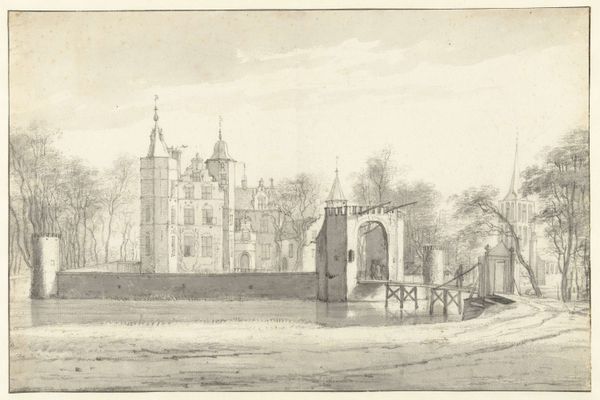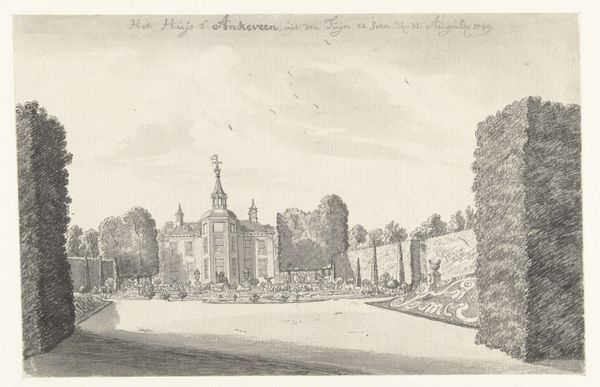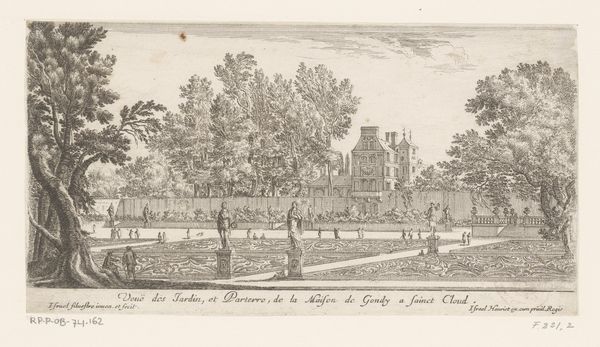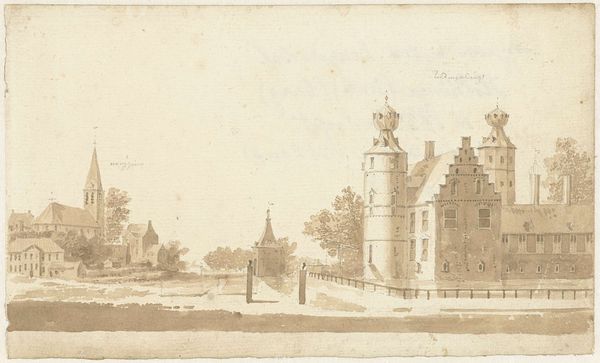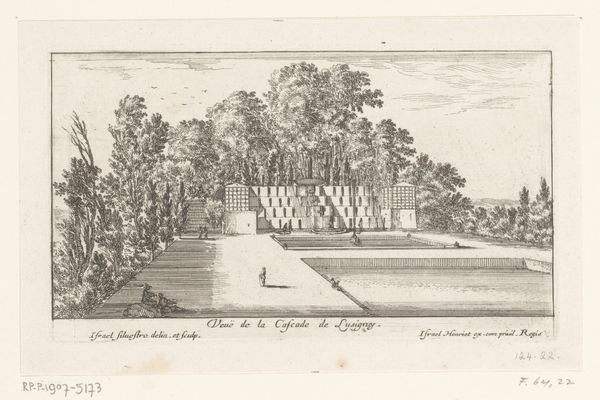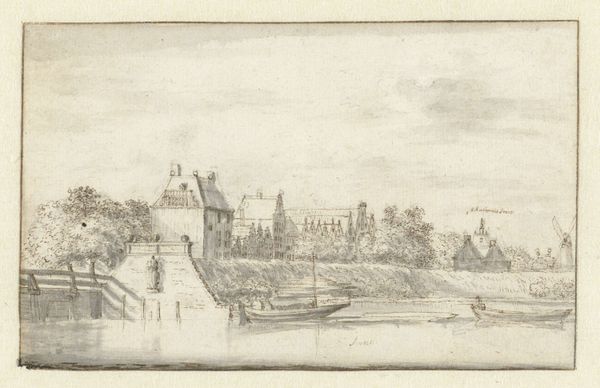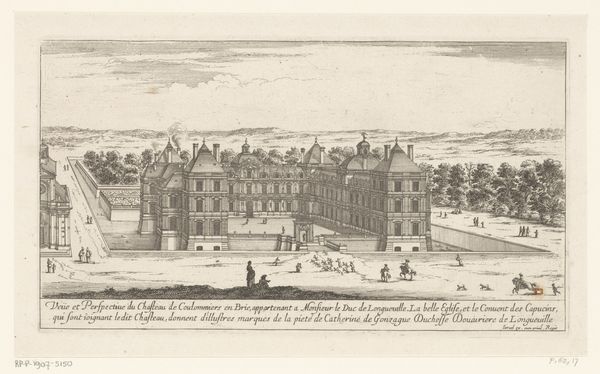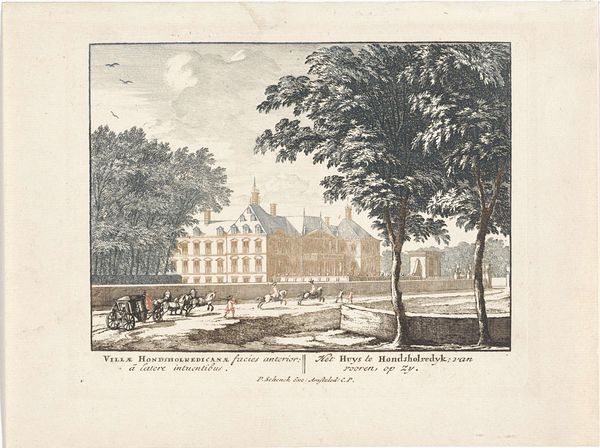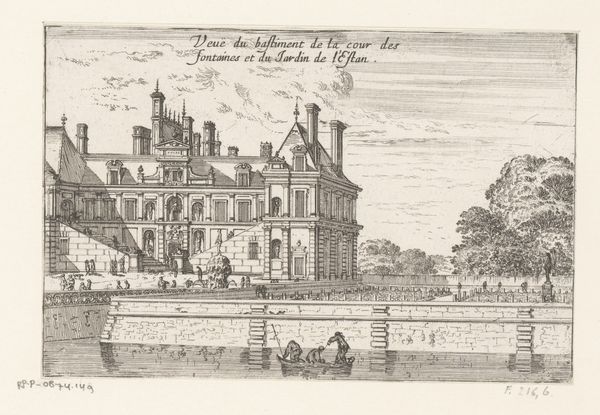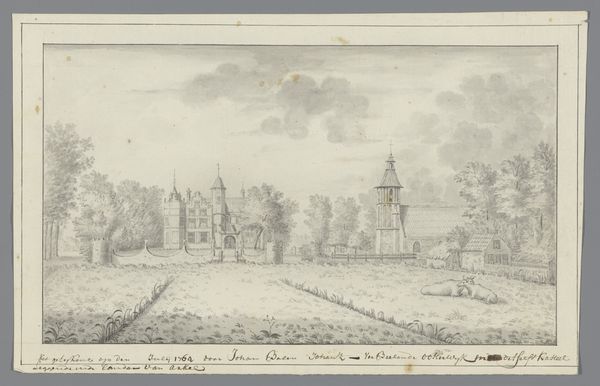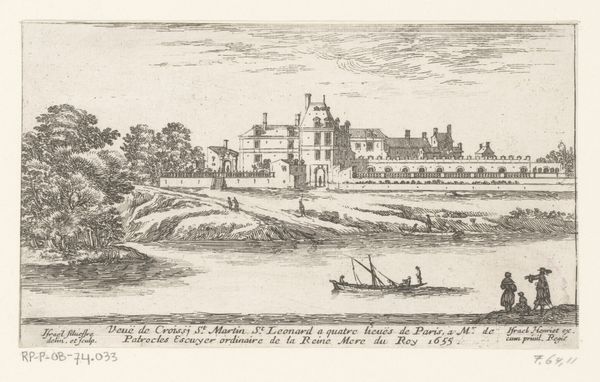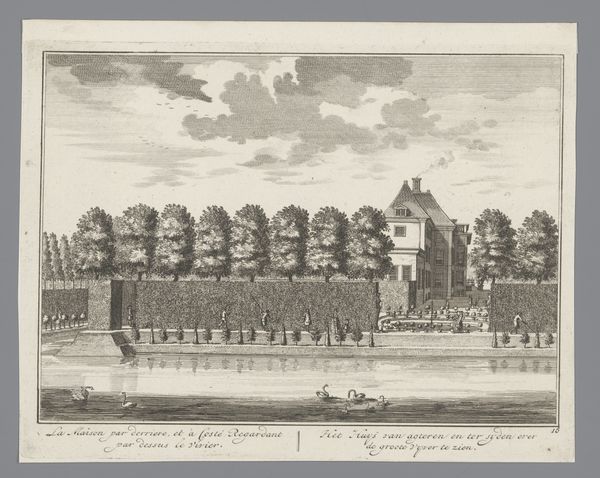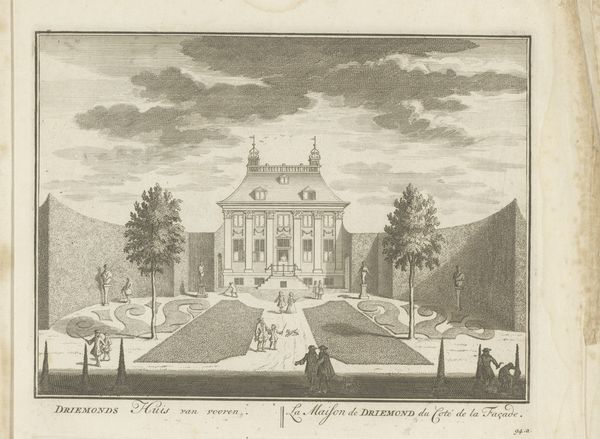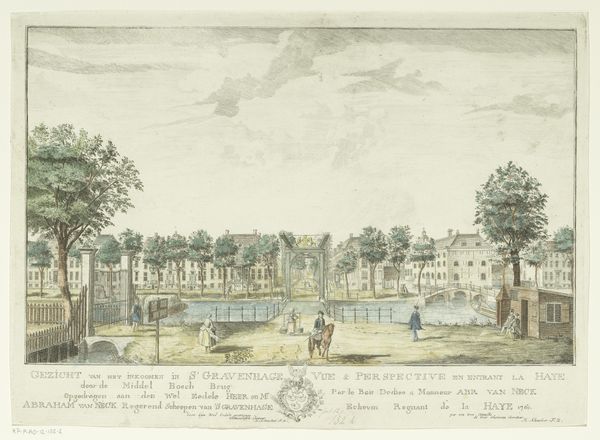
drawing, pen, architecture
#
drawing
#
landscape
#
pen
#
cityscape
#
academic-art
#
architecture
#
realism
Dimensions: height 156 mm, width 242 mm
Copyright: Rijks Museum: Open Domain
Jan de Beijer rendered "Het Huis te Ankeveen" in pen and gray ink around 1740, capturing the symmetry and order valued by the elite of the Dutch Golden Age. De Beijer, celebrated for his topographical drawings, here depicts the country estate, a symbol of wealth and status during a period marked by vast colonial trade and entrenched social hierarchies. The drawing reflects the cultural values of the Dutch elite. Note how the manicured gardens and grand architecture embody the period's emphasis on control and order, extending even to the natural world. These estates, owned by those who profited from global trade, stood in stark contrast to the lives of the working class and enslaved people whose labor supported this opulence. Consider how the drawing serves not just as a record, but as a statement of power and privilege, inviting us to reflect on the complexities of history and representation. What does it mean to memorialize such spaces, and whose stories are often left untold?
Comments
No comments
Be the first to comment and join the conversation on the ultimate creative platform.
